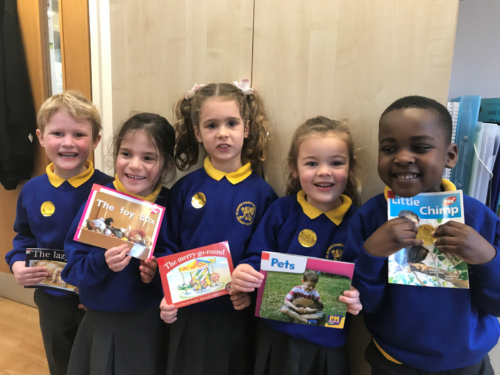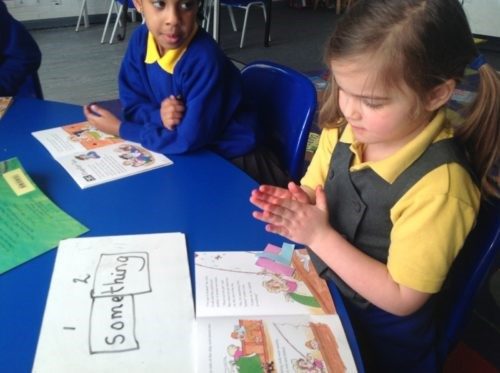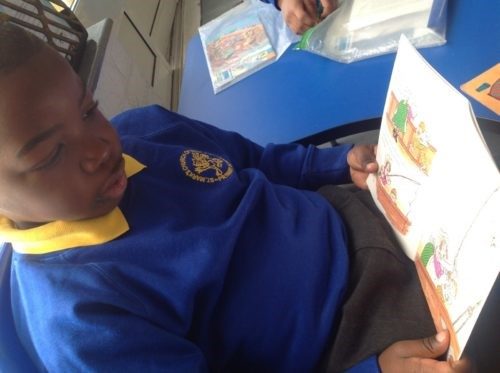Key Stage 1 Reading

The new National Curriculum programmes of study for reading at Key Stage 1 consist of two dimensions:
- Word reading (including phonics)
- Comprehension (both listening and reading).
In Key Stage 1, reading builds on work completed in the Early Years Foundation Stage (EYFS). As in the EYFS, children are taught to read by applying phonics skills and knowledge to decode words. This is taught in daily phonics lessons. Our teachers follow the F.F.T. Success for all Phonics, programme, which begins in nursery. We want our children to develop a love for reading from an early age and as such encourage children and parents to have books, which are specifically for pleasure for read, as well as their phonetically decodable books.
Year 1 Reading
Each day, the children participate in a Phonics lesson which allows them to revisit phonemes and graphemes to consolidate their learning, before moving onto new learning. In these lessons, the children have the opportunity to apply their knowledge through orally blending, segmenting and then reading and writing sentences. As a part of FFT, each week the children are exposed to new green (decodable) words and red (‘tricky’) words.
Following on from this, the children participate in a shared reading session each day, which correlates directly with the phonemes and graphemes that they have just taught in the phonics lesson. Through the use of choral, partner and teacher led reading, the children have many opportunities to become fluent, confident readers, whilst expanding their vocabulary and comprehension skills.

Year 2 Reading
The FFT program has recently been expanded to cover the Year 2 curriculum and allows the children to read a wide variety of text types. This allows the children to seamlessly transition from Year 1 Phonics and Reading to the expectations of Year 2. The children use prediction, choral reading, echo reading, partner reading and independent reading to build on their fluency and comprehension skills

Year 3
In Year 3, we avoid rushing children into domains for KS2. For the first half term, the children are coached through the movement from KS1 to KS2. This means the children will, if needed, complete the year 2 work, and continue with specialised phonics teaching. This is adapted depending on the cohort and teacher judgement.
As the term progresses, the reading for our children formalises further in Year 3 with the introduction of guided reading. Within this structure the children are broken into groups, where they can access texts from a range of genres. The children are asked questions based on texts, which follow the key reading domains from the National Curriculum. The children will receive group based teaching, at least twice per week, where new vocabulary is discovered and teachers can assess fluency etc. Also through these guided reading lessons, children are given time in the library as well as time to read their own books for pleasure. These lessons are often a calm time in the school. In phase 2 we also have a dedicated HLTA who specialised in aiding children who have fallen behind, in order to aid their progress.
